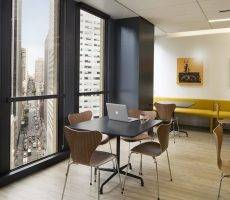October 2, 2016
Apple HQ + Limits of workplace design + Workplace effectiveness 0
 In this week’s Newsletter; Tim Oldman argues that businesses are failing to understand the basis of workplace effectiveness; Mark Eltringham looks at ways of using workplace design to influence the feelings and behaviour of others; and takes part in a podcast with Hari Kalymnios, author, trainer and Leadership Speaker at The Thought Gym. HSBC moves 300 staff into a coworking space in Hong Kong; Apple reveals it is to occupy the redeveloped Battersea Power Station and post-Brexit employment levels maintained by the growing gig economy. The global introduction of sustainable building regulations remains slow; the UK’s commercial property market remains robust in the wake of the vote to leave the European Union; and evidence that offering flexible working to Mums could boast the economy by billions. Download our new Briefing, produced in partnership with Boss Design on the link between culture and workplace strategy and design; visit our new events page, follow us on Twitter and join our LinkedIn Group to discuss these and other stories.
In this week’s Newsletter; Tim Oldman argues that businesses are failing to understand the basis of workplace effectiveness; Mark Eltringham looks at ways of using workplace design to influence the feelings and behaviour of others; and takes part in a podcast with Hari Kalymnios, author, trainer and Leadership Speaker at The Thought Gym. HSBC moves 300 staff into a coworking space in Hong Kong; Apple reveals it is to occupy the redeveloped Battersea Power Station and post-Brexit employment levels maintained by the growing gig economy. The global introduction of sustainable building regulations remains slow; the UK’s commercial property market remains robust in the wake of the vote to leave the European Union; and evidence that offering flexible working to Mums could boast the economy by billions. Download our new Briefing, produced in partnership with Boss Design on the link between culture and workplace strategy and design; visit our new events page, follow us on Twitter and join our LinkedIn Group to discuss these and other stories.


































September 10, 2016
Home working myths + Millennial’s needs + Global sustainability 0
by Sara Bean • Comment, Facilities management, Flexible working, Newsletter, Property, Workplace, Workplace design